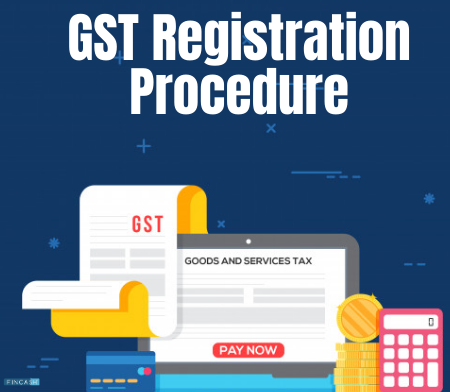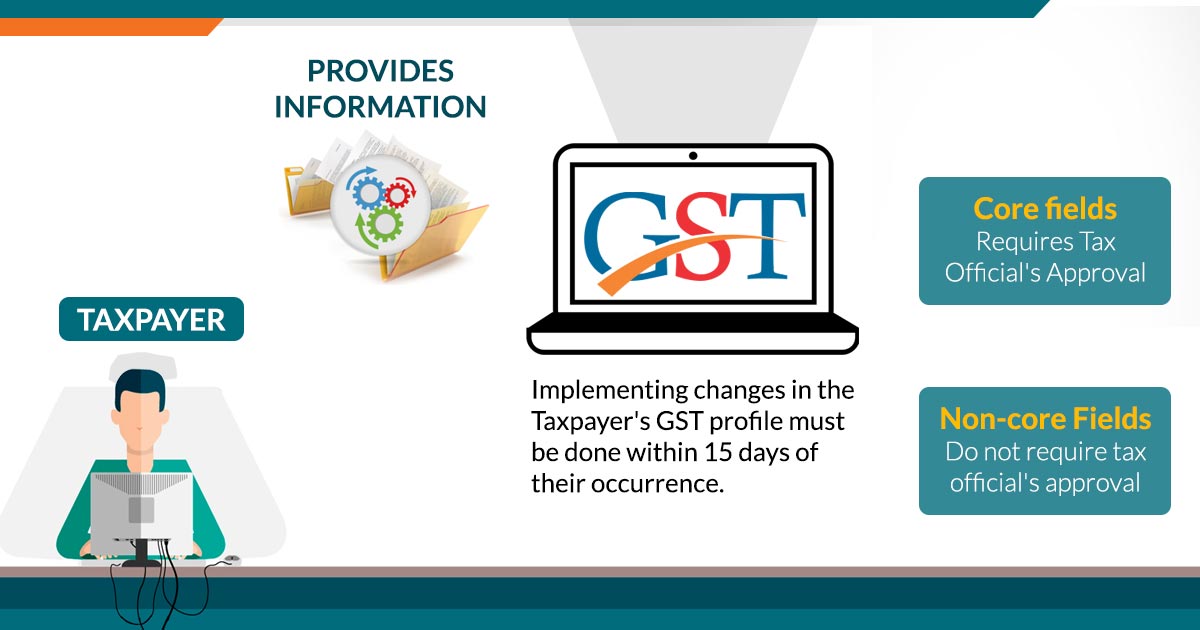Enhance Your GST Registration Experience in Singapore with CFO Account & Services: Here's Why
Enhance Your GST Registration Experience in Singapore with CFO Account & Services: Here's Why
Blog Article
From Begin to Complete: An Extensive Review of GST Enrollment and How to Effectively Register Your Business
Navigating through the intricate process of GST enrollment can be a vital action for any business wanting to develop compliance and authenticity on the market. Why choose CFO Account & Services for GST registration in Singapore. From recognizing the basic concepts of GST to satisfying the eligibility standards and collecting the necessary documents, the journey towards successful enrollment can commonly appear like a challenging job. With the best guidance and insights, services can enhance this process and unlock the advantages that come with being a registered entity.
Comprehending GST and Its Importance
Understanding the Product and Solutions Tax Obligation (GST) and its relevance is crucial for companies running in economic climates where this taxes system is carried out. GST is a value-added tax levied on the supply of goods and services, developed to enhance the indirect tax framework. It changes numerous cascading tax obligations imposed by the state and central governments, developing a unified market throughout the nation. One of the crucial benefits of GST is the elimination of the cascading effect of taxes, causing increased effectiveness in the tax obligation system. By allowing services to assert input tax obligation debts on the tax paid on purchases, GST ensures that tax obligations are computed only on the value included at each phase of the supply chain.
Moreover, GST advertises compliance and openness in the tax obligation routine, decreasing tax obligation evasion and boosting government profits. It streamlines tax obligation administration and conformity for services by offering a common platform for tax filing and repayment. Overall, a thorough understanding of GST is crucial for services to effectively navigate the complexities of the tax system and guarantee conformity with the law.
Qualification Criteria for GST Registration
To sign up for GST, businesses must satisfy certain eligibility standards described by the tax obligation authorities. The key demand for GST registration is that the business's accumulated turn over goes beyond the limit established by the federal government, which differs by state. As of the present guidelines, services with a yearly turn over of Rs. 40 lakhs or even more in many states must sign up for GST. Nevertheless, for services running in uneven areas and northeastern states, the threshold is Rs. 20 lakhs. Furthermore, certain services, such as those involved in inter-state supply of services or items, casual taxable persons, and non-resident taxable persons, are needed to register for GST no matter of their turn over.
In addition, organizations included in supplying goods or services with e-commerce platforms are also mandated to register for GST, regardless of their turn over. Additionally, businesses that were signed up under the previous tax program, such as VAT, excise responsibility, or solution tax, should transition their enrollment to GST. Adhering to these eligibility standards is critical for organizations seeking to follow the GST guidelines and avoid any charges for non-compliance.
Documents Required for GST Enrollment
When requesting GST registration, services need pop over to these guys to guarantee they have all the necessary files in order to complete the procedure smoothly and successfully. The vital papers needed for GST registration include evidence of service enrollment or consolidation such as the Certification of Unification, partnership act, or enrollment certificate. In addition, businesses require to supply proof of address for the major workplace, which can be supported by records like an utility costs or a rental agreement.
Additionally, files verifying the identity and address of the partners or promoters included in the company, such as frying pan card, Aadhaar card, go to these guys or key, are important for GST enrollment. Savings account declarations or terminated cheques showing the name of the business, account, and address number are additionally mandatory to verify the financial institution account information offered throughout registration.
Ensuring all the essential papers are in order and conveniently available will improve the GST registration procedure and aid businesses prevent hold-ups or issues.
Online Enrollment Refine for GST

After completing the form, sustaining papers need to be posted as per the standards supplied. These files generally include proof of organization enrollment, address proof, financial institution declarations, and identity proof of business proprietor. It is vital to make sure that all files are clear, valid, and submitted in the specified style to avoid delays in the enrollment procedure.
As soon as the application and papers are sent, businesses can track the status of their GST enrollment online. If there are no problems or extra information needed, the GST enrollment this certification will be released online, noting the successful conclusion of the online enrollment procedure.
Post-Registration Conformity and Tips

Organizations need to remain updated on any kind of adjustments in GST policies, prices, or compliance procedures to make needed changes immediately. Seeking specialist assistance from tax consultants or accounting professionals can additionally aid companies navigate complicated GST compliance requirements effectively.
Final Thought
Finally, the procedure of GST enrollment is crucial for companies to follow tax policies and operate lawfully. By comprehending the qualification standards, collecting the required files, and finishing the on the internet registration process, services can successfully register for GST. It is essential to stay compliant with post-registration requirements and look for specialist assistance when needed to make certain smooth operations.
Companies that were registered under the previous tax routine, such as VAT, excise obligation, or solution tax obligation, should shift their enrollment to GST. The crucial files needed for GST registration include proof of service registration or incorporation such as the Certificate of Incorporation, collaboration deed, or enrollment certificate.Upon effective conclusion of the GST enrollment process, companies must quickly adhere to post-registration compliance needs to maintain regulatory compliance and ensure smooth operations.In conclusion, the process of GST enrollment is crucial for services to comply with tax obligation policies and run legitimately. By recognizing the eligibility requirements, gathering the required records, and completing the on-line enrollment procedure, services can efficiently register for GST.
Report this page